The 4 Best Gaming Routers of 2024
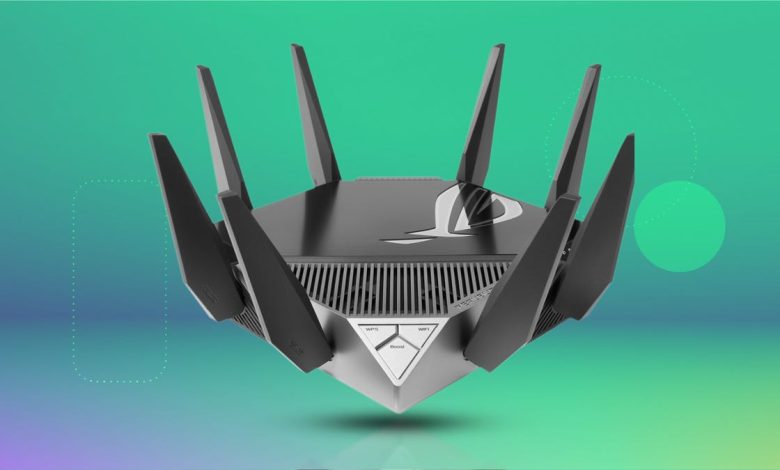
[ad_1]
Anyone who spends time gaming online knows that a good internet connection is essential to your experience, and often this includes having the right router. The right router allows for a stable connection to online game servers and avoids lag, which is especially important when playing online multiplayer games. While it’s better to have an Ethernet cable wired into your PC’s LAN ports, if you have one of the best wireless routers you shouldn’t notice too much of a difference.
There are a ton of gaming routers on the market that claim to boost your gaming performance, but which ones are the best gaming routers? To answer that question, I went on a personal quest to find the fastest router to boost my internet connection. I’ve put together this buyer’s guide as a compilation of everything I’ve found out so far, starting with the top gaming routers you should consider first in your hunt for the best gaming router. I update this guide regularly.
Before you buy any routers for gaming, I recommend you look at my beginner’s guide to gaming lag to see ways you can bring down your ping. You may not need a new router at all, and in many cases, moving your wireless router to a different spot or adjusting the antennas of your current router could improve your network and your online gaming performance. If you’ve tried all that, and your gaming connection still needs an upgrade, you’re reading the right roundup.
Read more: Best Internet Providers for Gaming
Best gaming routers
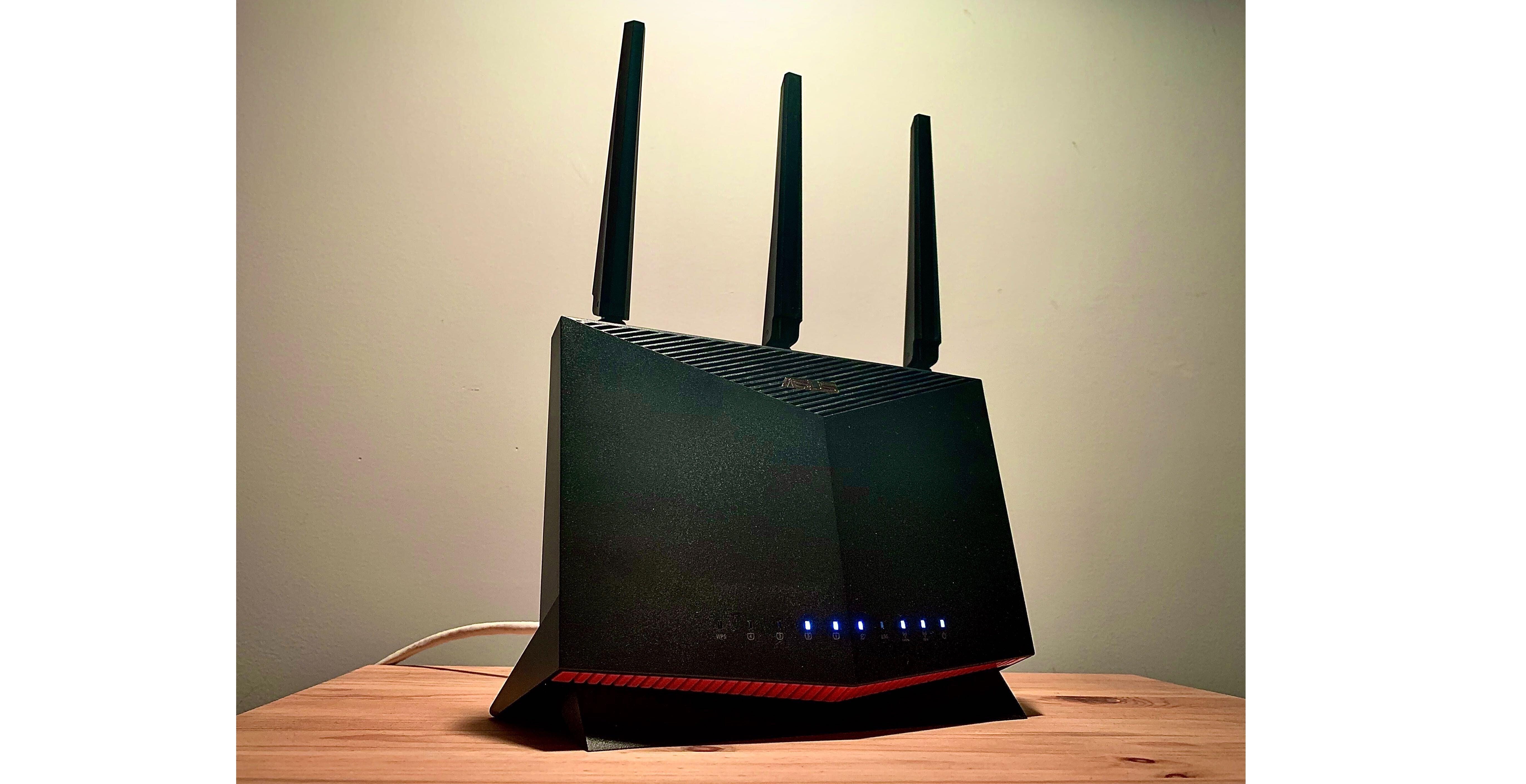
Asus RT-AX86U
Best gaming router overall
First up is the first gaming router I’d recommend to most people, and a router I’d recommend to just about anybody, truth be told. It’s the Asus RT-AX86U, and it replaces our previous best gaming router pick… the Asus RT-AC86U.
We liked that previous Asus router model for its fast, steady speeds, its impressive lineup of gamer-centric features and its strong finish in our latency tests. Relatively new (it came out in 2020), the RT-AX86U offers all of the same, and it adds in support for Wi-Fi 6 for a list price of around $300. That’s certainly not inexpensive, but flashier gaming routers can cost $400 or more.
What’s most impressive about the RT-AX86U is how it handles latency. Whenever I test a router, I end up logging at least 100 different speed test results, including the ping time it takes for the router to send a signal to a remote server and receive a response. Most routers do pretty well, save for the occasional spike. Latency spikes like those can be a killer when you’re looking at online gaming — but fortunately, the RT-AX86U earned the lowest average ping time of any router I’ve ever tested, never spiking any higher than 25ms. That’s an outstanding result.
It comes equipped with a USB port, four LAN ports, 2.5Gbps and 1Gbps WAN, as well as WPS.
Beyond managing lag, Asus also boasts an excellent router app and web control interface for easy setup, along with helpful features like a quality-of-service engine, a mobile boost mode for gaming on your phone and lots of other ways to optimize your connection for a good gaming experience. Plus, the design is gamer-friendly without being too over-the-top. If you want a gaming-minded wireless router upgrade but you’re worried about buying more than you need, look no further — this is the best gaming router and it hits the sweet spot.
…Read more
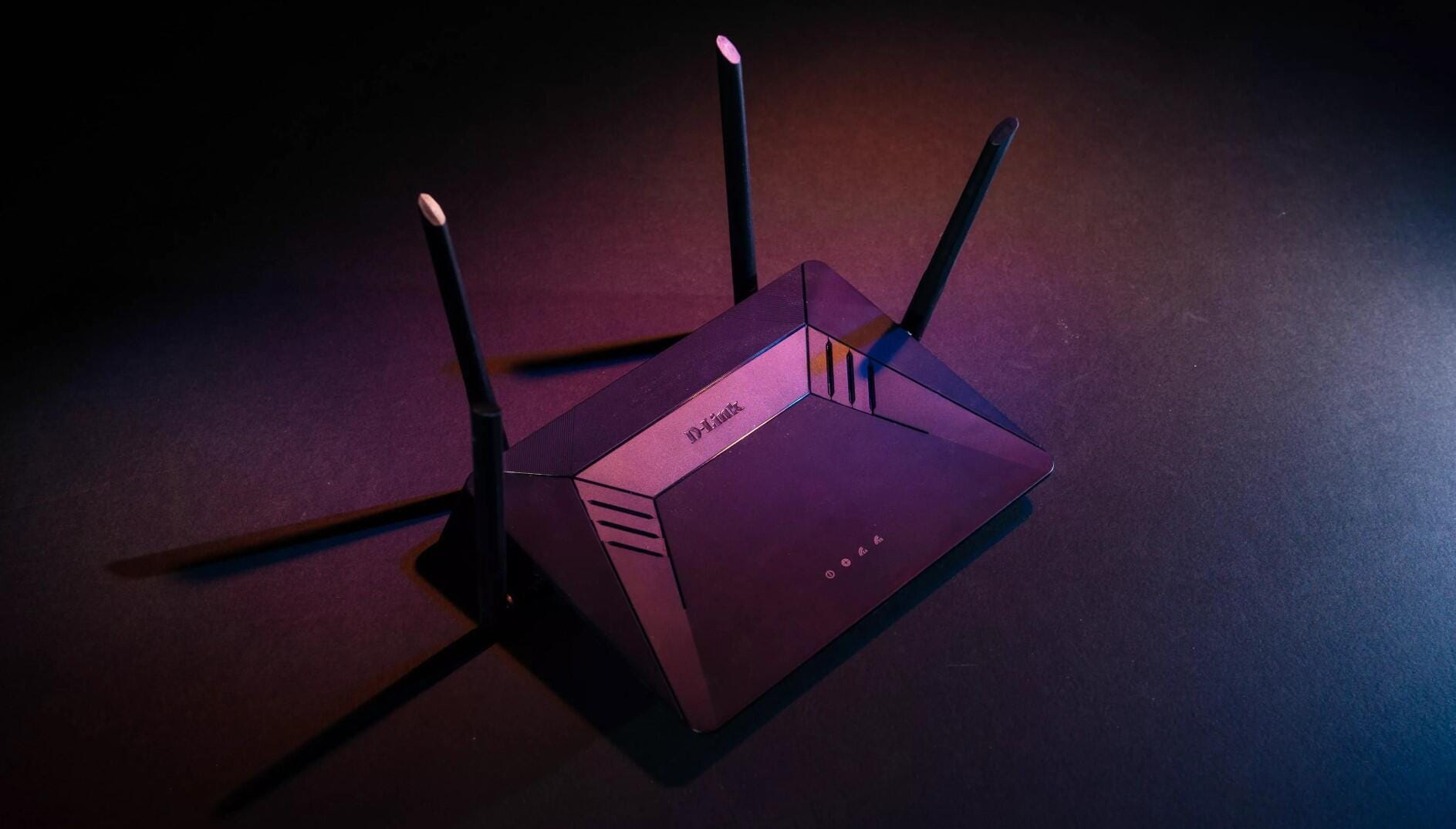
The D-Link DIR-867 was the best gaming router for someone looking for something inexpensive of the ones I tested for this roundup — and it performed surprisingly well, boasting the fastest average speeds on the 2.4GHz band in both our lab-based top speed tests and our home-based real-world speed tests. It held its own on the speedier 5GHz band, too, beating out several wireless routers that cost significantly more.
Die-hards will likely want more features focused on their gaming experience and performance, but the DIR-867 gaming router at least includes a quality of service engine to let you prioritize gaming traffic above other types of network traffic. It’s a great gaming router for most — especially if you don’t want to break the bank on something fancier.
…Read more
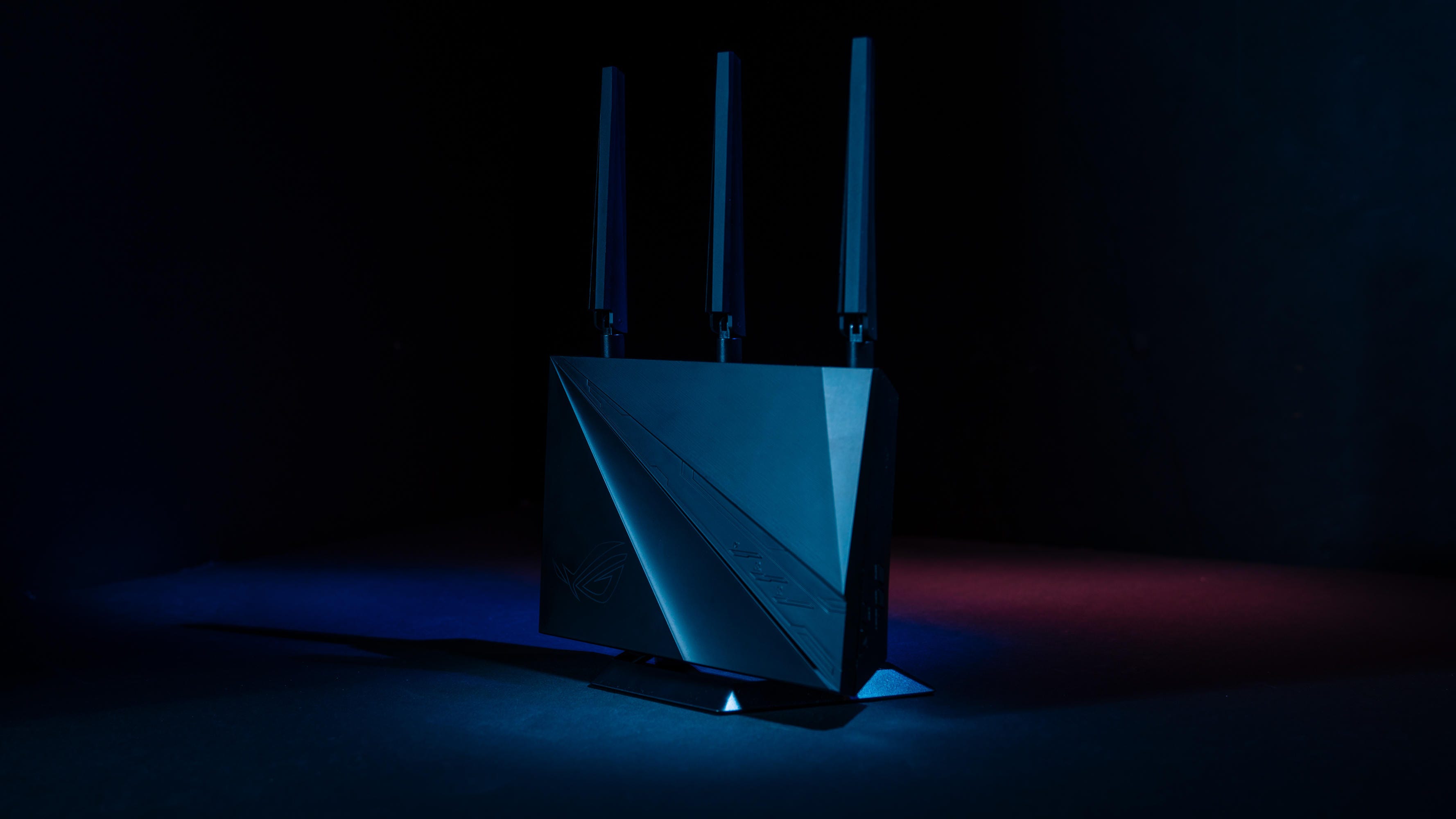
Asus ROG Rapture GT-AC2900
It doesn’t offer the same top speeds that you’ll get with Asus’ Wi-Fi 6-equipped GT-AX11000, but that didn’t stop the Asus ROG Rapture GT-AC2900 dual-band router from outperforming it in my home throughout several rounds of tests. The GT-AC2900 was one of the top finishers in terms of average download speeds, latency and range. It offers the same excellent suite of gaming features as other gaming routers from Asus, including a customizable Quality of Service engine and game-and-platform-specific open NAT port-forwarding rules.
…Read more
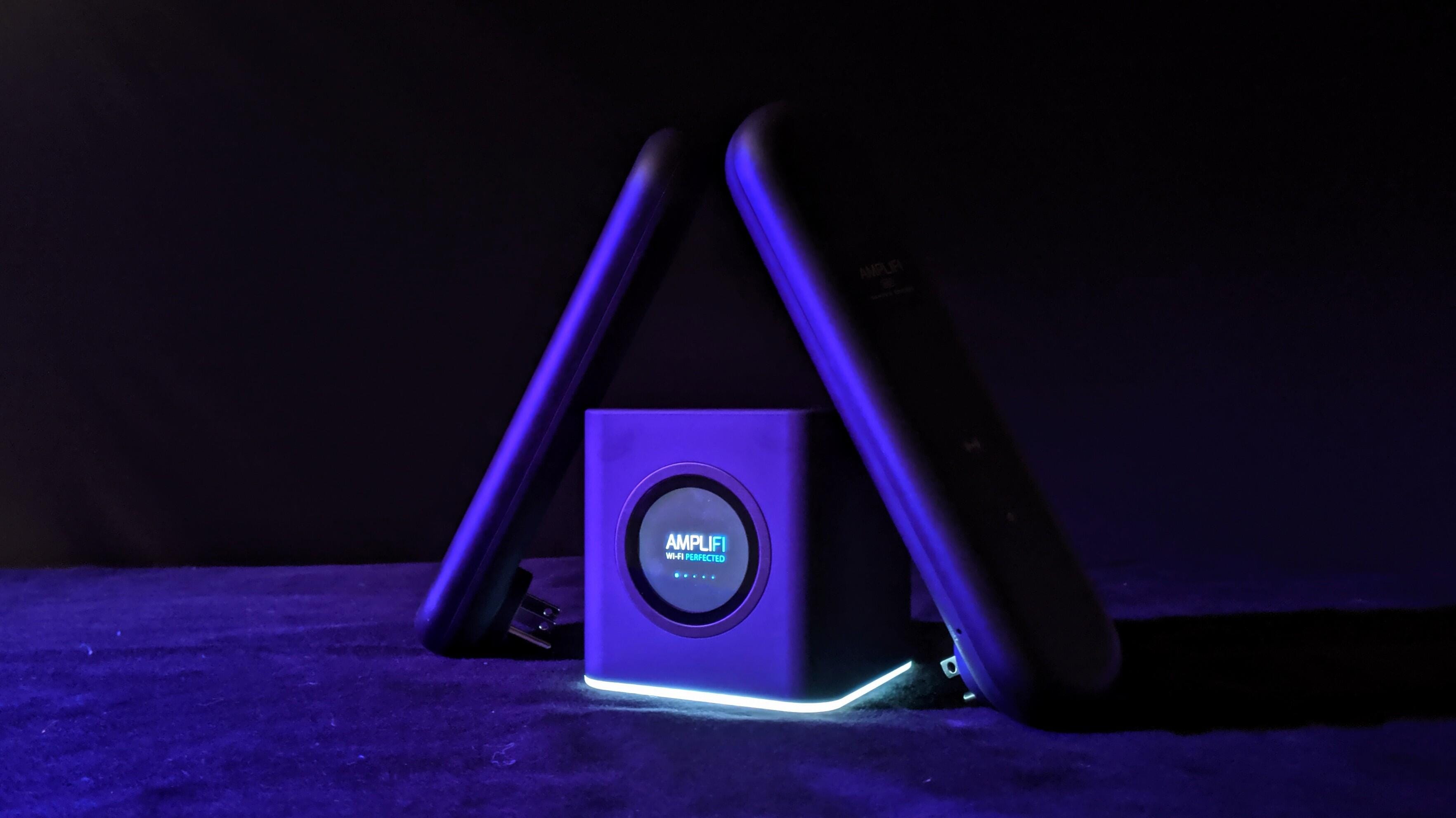
Amplifi HD Gamer’s Edition
Best gaming router design
(Update: Back-ordered)
If you’re looking for a router with gaming-minded key features and design, but you’re also interested in multipoint mesh networking, then take a look at the Amplifi HD Gamer’s Edition from Ubiquiti. It wasn’t a standout in our lab-based top-speed tests, but with plug-in range extenders that are about as easy to use as it gets, it excels at spreading a stable, speedy Wi-Fi signal from room to room.
On top of that, the unique, attractive design doesn’t take up an obnoxious amount of space — and with a touchscreen on the front and LED lights around the base, you’ll actually want it to sit out in the open, where the mesh router performs better. You’ll also appreciate the app’s easy-to-use features, including a dedicated low-latency mode that can help you tweak your connection and avoid lag on multiple devices.
Priced at a high premium on Amazon and back-ordered elsewhere, it’s an expensive option for sure, but it’s not outrageous among other high-end mesh networks that include two range-extenders (for comparison, the Nest Wifi Pro mesh Wi-Fi system normally costs $400 for a three-piece setup, although you can pick it up for much less on sale).
…Read more
All the routers we tested
Along with seeing how today’s gaming routers stacked up against one another, I wanted to get a sense of how they compared with the sort of standard routers that you might be tempted to upgrade from. Given that a few of these gaming routers use next-gen Wi-Fi 6 technology, I made sure to test a few other Wi-Fi 6 routers, too.
All told, that left us with more than a dozen routers to test. Here’s the full list:
- Zyxel Armor Z2 AC2600 (Update: Currently Unavailable): $25
- TP-Link Archer A9 AC1900 (Update: Currently Unavailable): $100
- D-Link EXO AC2600: $59
- D-Link DIR-867 AC1750: $68
- Linksys EA8300 AC2200: $139
- TP-Link Archer C3150: $99
- Asus RT-AC86U: $265
- Asus ROG Rapture GT-AC2900: $199
- TP-Link Archer AX6000: $200
- Netgear Nighthawk Pro Gaming XR500: $127
- Netgear Nighthawk AX12: $184
- Asus RT-AX86U: $289
- TP-Link Archer C5400X: $159
- Asus ROG Rapture GT-AX11000: $525
How we test gaming routers
Testing routers is a tricky business. Wi-Fi connections are finicky, with lots of variables and key features that will affect your speeds. We do our best to account for those variables in our tests, but some factors are beyond our control (and beyond your router’s control, too).
For instance, your home’s specific internet service provider connection is like a speed limit for your router. If you’re paying for speeds of up to, say, 50 megabits per second, then your router won’t transmit data from the cloud any faster than that. The average ISP download speed in the US is somewhere around 100Mbps, while those living in areas with access to fiber connections might enjoy speeds of 200, 500 or even 1,000Mbps if they’re really lucky.
That raises an obvious question: How do you test the top speed of a router like that TP-Link AX6000, which promises Wi-Fi 6 data transfer rates well above 1,000Mbps?
Read more: Best Racing Wheels and Pedals for iRacing
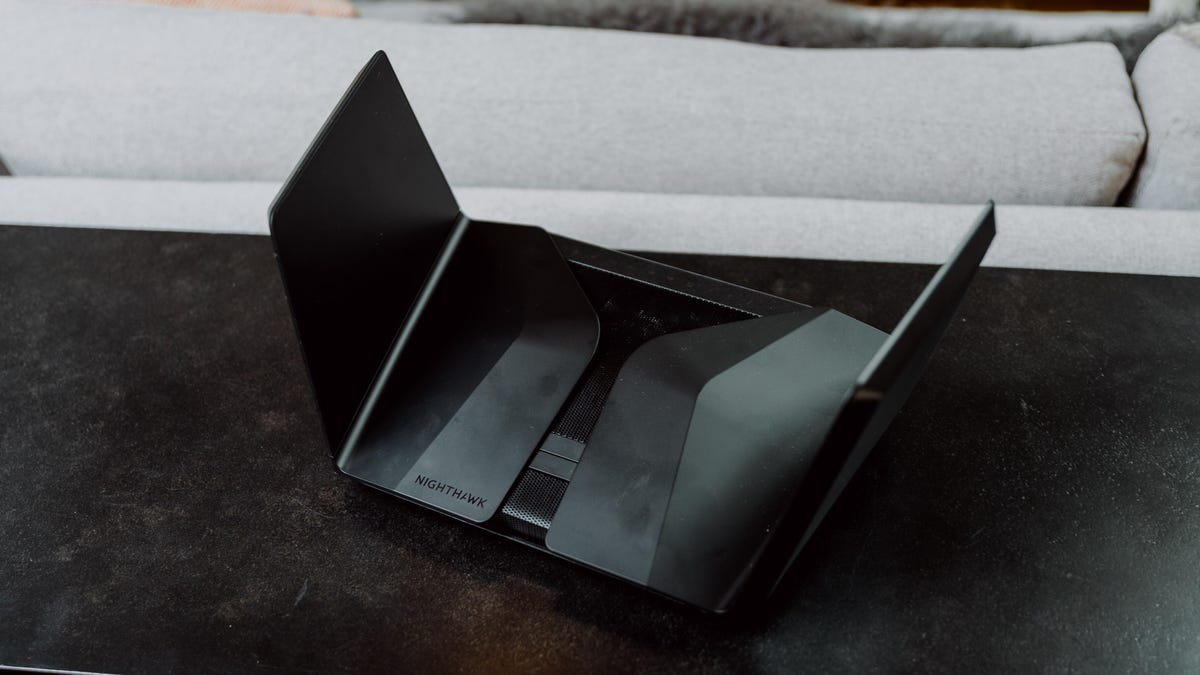
Wi-Fi 6 routers like the TP-Link Archer AX6000, the Asus ROG Rapture AX11000 and the Netgear Nighthawk AX6000 model seen here were all able to hit top speeds well above 1Gbps (1,000Mbps).
Top speed tests
Our approach bypasses the ISP entirely. Instead of using a modem to pull data from the cloud, we pull data from a local server using a wired connection. Our local server of choice is a MacBook Pro. We connect it to the router using a CAT 7 Ethernet cable to keep interference as low as possible, plus we use an adapter to connect to the MacBook’s Thunderbolt 3 port since it supports data transfer speeds that are plenty fast for our purposes.
From there, we take a second laptop and connect to the router’s wireless network; then we clock the speeds as we download the data that the router is fetching from the MacBook via that wired connection. We run this test several times on each router’s 2.4GHz and 5GHz bands and at various distances. In the end, we get a great look at how quickly each router is able to transmit data to a connected device like your phone, gaming PC, gaming laptop or gaming console of choice.
Yes, you’ll see much faster speeds if you connect that gaming console directly to the router via Ethernet cable. We tested those wired speeds too and didn’t see any noticeable difference between any of the routers we measured. Each came within a megabit or two of 940Mbps, which is what you’d expect from a Gigabit Ethernet connection.
As for wireless speeds, the graph above shows the top speeds for each router on both the 2.4GHz band (blue) and the faster 5GHz band (red) at distances of 5, 37.5 and 75 feet.
Here’s what jumps out at me from these results. First, it’s easy to spot the three Wi-Fi 6 routers we tested up at the top — they clocked top speeds on the 5GHz band that were much, much faster than any other router we tested. Bear in mind that we’re running these speed tests on a laptop that supports Wi-Fi 6. If we weren’t, those bars would likely be a lot shorter.
The fastest among them was the TP-Link Archer AX6000, which we measured an average speed of 1,523Mbps on the 5GHz band at a distance of 5 feet. When we increased the distance to 75 feet, the average speed fell to 868Mbps, which is still a faster speed than any of the Wi-Fi 5 routers we tested were able to reach at all, even up close.
I should note that those Wi-Fi 6 routers didn’t blow the competition away on the 2.4GHz band (again, blue). The router with the fastest average speeds across all distances on the 2.4GHz band was actually the Netgear Nighthawk Pro Gaming XR500, which doesn’t support Wi-Fi 6 at all. Right behind it is the D-Link DIR-867, which also holds the distinction of being the cheapest router we tested for this roundup. That, coupled with the fact that it includes a Quality of Service engine that can prioritize gaming traffic, is what made it an easy value pick in this field.
That Netgear model was also the fastest Wi-Fi 5 router on the 5GHz band, which tells us that it’s a pretty capable piece of hardware. Meanwhile, our top overall pick, the Asus RT-AC86U, was right behind it with the second-fastest Wi-Fi 5 speed on the 5GHz band, although its speed dipped a bit at medium range. The aforementioned DIR-867 and the Zyxel Armor Z2 each scored well in this speed test, too.
Real-world speeds
Measuring top speeds in a controlled test environment gives us a clear look at what these routers are technically capable of, but you won’t see speeds that fast in your home. Remember, your router can only pull data from the cloud as fast as your ISP speed allows and signal strength will vary from home to home based on the layout and the amount of obstructions in the way.
To account for this, we ran a second batch of tests. This time, I tested each router in my own home, a smallish shotgun-style house of about 1,200 square feet where I have AT&T fiber internet speeds of up to 300Mbps. I ran my speed tests on a Dell XPS 13 laptop that’s a few years old and doesn’t support Wi-Fi 6. The goal was to get a good look at the types of speeds most people would experience if they brought one of these routers into their home.
Amplifi’s app lets you choose between Latency and Throughput modes depending on your needs, and it includes helpful features like signal strength indicators for the plug-in extenders.
To gather my data, I ran an abundance of speed tests from five different locations in my home, ranging from the living room where the router lives to a back bathroom on the opposite end of the house. Throughout all of my tests, I always kept a TV streaming live video from PlayStation Vue (RIP) to simulate normal household network traffic in a controlled fashion (and also so my very patient roommate could at least watch TV while politely staying off the Wi-Fi during my tests).
After running multiple speed tests from each of those locations, I averaged everything together. ISP speeds can fluctuate throughout the day, so to help account for this as best as I could, I’d run this whole process again with each router at a later time. Then, I’d average that data with the first batch of tests.
Fourteen routers, five locations in my home, three tests per location, two rounds of tests (at minimum). When you add in the additional tests I ran to double-check a result or measure the impact of specific features, it amounts to roughly 1,000 speed tests and counting.
Those averages proved telling. The top finisher on the 5GHz band turned out to be the Netgear Nighthawk Pro Gaming XR500, which averaged more than 250Mbps across all of my speed tests, including ones in the back of my house where the signal strength is typically poor. The Amplifi HD Gamer’s Edition, which uses plug-in mesh extenders to help relay the signal around the house, was the runner-up. It was one of the worst performers when we measured top speeds, but unless you have a blazing-fast internet connection of 500Mbps or faster, you won’t notice that at all.
As for our top pick, the Asus RT-AX86U, it finished with an overall average download speed of 218Mbps, which is a strong finish and stronger still when you add in the exceptional lag performance.
Meanwhile, it was the bargain-priced D-Link DIR-867 that, once again, led the way on the 2.4GHz band. With an average speed of 85.9Mbps throughout my place, it was the top finisher, but I’d note that speeds dropped considerably at range. In that back bathroom I mentioned, it averaged a download speed of 32.3Mbps, which is about 62% slower than the overall average, and a bigger drop-off than I saw from just about every other router I tested. That tells me that the DIR-867 would work best in small homes like mine. For anything bigger, you’ll want something with a better range.
The Asus RT-AX86U features a stylish design and lots of helpful features for gaming, including a Quality of Service engine and a mobile boost mode for gaming on your phone.
Despite the complete lack of Wi-Fi 6 client devices in my home, the Wi-Fi 6-equipped TP-Link Archer AX6000 was another standout in my tests, with strong average speeds on both the 5GHz and 2.4GHz bands and excellent range from room to room. It saw the smallest dip in speeds in that back bathroom on the 2.4GHz band, and was a top-five finisher by that metric on the 5GHz band, too.
I can’t say the same for the Netgear Nighthawk AX12 or the Asus ROG Rapture GT-AX11000, though. Despite high top speeds in our first round of tests at the lab, neither of those Wi-Fi 6 routers tested well in my home. They were the two bottom finishers in terms of average overall download speeds on the 5GHz band. Both currently cost around $400 — for my money, the TP-Link Archer AX6000, which you can currently get for $180, is a much better upgrade pick for anyone who’s ready to jump in with Wi-Fi 6. If you just want the gaming-centric features from the Asus ROG lineup, you’ve got other options that cost less, like the GT-AC2900.
Latency
One last point: My glut of at-home speed tests allowed me to take a look at latency, too. As I said before, there’s only so much your router can do to bring lag down, especially if you’re connecting to a busy server that’s thousands of miles away. Still, a good gaming router should help minimize those occasional latency spikes that can be a real killer when they hit your network at a critical moment during an online match.
With that in mind, I made sure to run each of my dozens and dozens of speed tests connecting each router to the same server located a few hundred miles away and I logged the ping to that server each time. In most cases, that ping would come in at around 15 milliseconds or so, but I also saw plenty of spikes that were a lot higher than that.
Each of these graphs shows you how much lag I recorded across 90 speed tests for a single router. Routers that keep the colored line closer to the center of the graph are better — and the Asus RT-AX86U (purple) is the best I’ve ever tested.
The worst offender was the Linksys EA8300, which returned average latencies of 37.5ms on the 2.4GHz band and 35.4ms on the 5GHz; dead last on both fronts. The TP-Link Archer A9 AC1900 struggled on the 2.4GHz band, too, with an average latency of 34.8, although it did manage to do a little better on the 5GHz band, with an average ping just below 20ms.
Read more: Best Game Subscription Services: How to Choose
The best of the bunch? That’d be our top pick, the Asus RT-AX86U. Across 90 speed tests at my home, it didn’t see a single spike above 20ms, which is truly outstanding.
One last point on latency. Most of these gaming routers and others like them will do things like route your gaming traffic to the nearest possible server or keep you from joining public rooms with especially laggy competitors. Features like those can help prevent common latency pitfalls, but they won’t do much of anything on their own to improve your latency across the board.
The Asus ROG Rapture GT-AXE11000 is a high-end gaming router that supports Wi-Fi 6E. That means it’ll be able to operate on the newly opened 6GHz band.
What to watch for
We’ll be sure to continue testing new gaming routers in the months ahead, but beyond that, we started to see the very first routers that support Wi-Fi 6E at the end of 2020. Routers like those will add access to the newly opened 6GHz band, which they get to use as sort of an extra-wide private highway for Wi-Fi 6 traffic. Asus was the first to announce a Wi-Fi 6E router, and sure enough, it’s a high-end gaming router.
We’ll continue testing what’s out there, along with budget-priced routers, mesh routers and other high-end, next-gen modern routers of note. Expect regular updates to this post whenever we test new hardware that might be a good fit for gamers and let us know in the comments if there are any specific models or features you’d like us to take a closer look at.
[ad_2]





